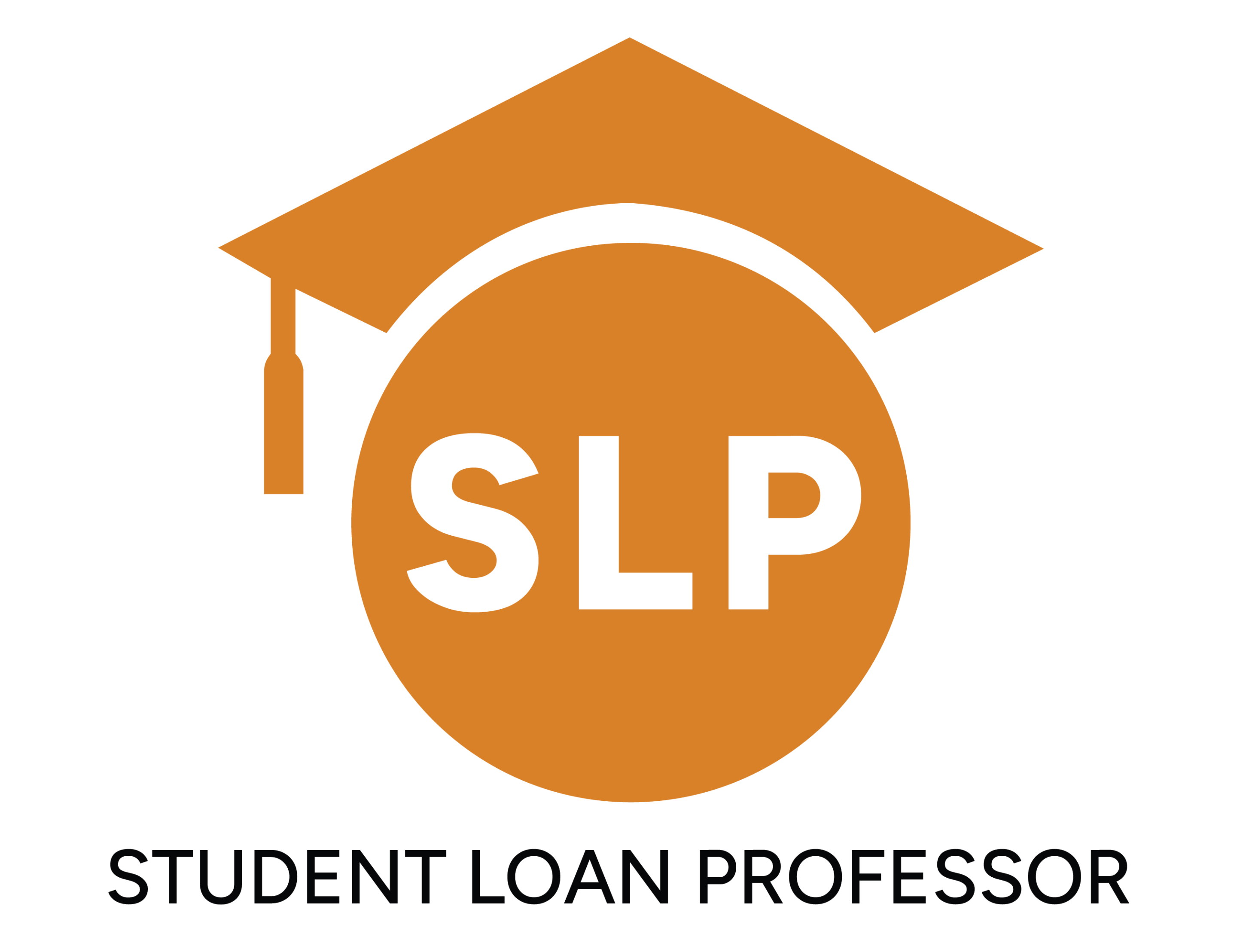Choosing the right student loan provider is one of the most important financial decisions you will ever make. The student loan provider you select will shape not just the cost of your education, but also the amount of flexibility and support you can access during repayment.
Understanding the different options available to you is key to making an informed decision, and key among these is the difference between federal and private student loan providers.
Federal loans, provided by the U.S. government, are recognized for their borrower-friendly features like income-driven repayment plans and loan forgiveness programs.
On the other hand, private loans offer a wide range of terms, often tailored to meet different financial needs, although they lack the same level of protection.
This article examines leading private and federal student loan providers, highlighting their distinct features and eligibility criteria to help you find the best fit for your needs.
Whether you’re seeking your first loan or considering refinancing options, explore which student loan provider best meets your financial needs.
Federal Student Loan Providers
Federal student loans are offered by the U.S. federal government through the Department of Education. They come with a host of borrower-friendly terms and benefits, which make them the first choice for most students.
For example, unlike private loans, most federal loans don’t require a credit check or a cosigner (except for PLUS loans), making them a lot more accessible. Federal loans also come with fixed interest rates set by Congress and various agreeable repayment options.
However, by far the biggest advantage to federal loans is their focus on flexibility and borrower support. For instance, provisions for deferment and forbearance allow you to pause payments during periods of financial hardships. Additionally, you have access to exclusive loan forgiveness programs.
Top Federal Student Loan Providers
Federal loans come from the government, so in this instance, the “providers” are the various types of loans under the Federal Direct Loan Program. These include:
1. Direct Subsidized Loans
These are federal loans designed for undergraduate students with demonstrated financial need as determined by the Free Application for Federal Student Aid (FAFSA).
One of the key features of the direct subsidized loan is that the government pays interest while you’re in school at least half-time, during the six-month grace period after graduation, and during any deferment period.
These are ideal if you qualify for need-based federal financial aid and wish to minimize the total interest accrued.
2. Direct Unsubsidized Loans
These are federal loans available to undergraduate, graduate, and professional students, regardless of financial need. They are suitable for students who may not qualify for subsidized loans but need additional funding.
Here, interest accrues from the time your loan is disbursed, including while you’re at school, and even during grace and deferment periods. As such, you can choose to pay interest while you’re still in school to prevent it from being added to the loan principal.
3. Direct PLUS Loans (For Parents and Graduates)
These are federal loans available to parents of dependent undergraduate students (Parent PLUS) and to graduate or professional students (Grad PLUS). They are ideal if you need to cover the remaining cost of attending a school after receiving other financial aid.
However, unlike other federal student loans, Direct PLUS loans require a credit check and may have higher interest rates compared to subsidized and unsubsidized federal student loans.
In return, these loans can cover up to the full cost of attendance, and come with the same federal loan repayment benefits you’d expect, including deferment and forbearance options.
4. Direct Consolidation Loans
These are federal loans that allow you to combine multiple loans into one, simplifying your repayment. They are a great option if you’re managing multiple loans with varying interest rates and repayment schedules, and wish to streamline your repayment process.
Even after consolidation, these loans maintain your access to all federal benefits and protections, including IDR plans and loan forgiveness. Additionally, your interest after consolidation will be the weighted average of the consolidated loans, rounded up to the nearest one-eighth percent.
However, these loans can have drawbacks; for instance, consolidating doesn’t reduce your interest rate or offer savings on repayment. In fact, it may extend your loan terms, leading to higher overall interest costs.
Benefits of Federal Student Loans
Federal loans offer unique advantages that make them the preferred option for most students. Let’s consider some of these benefits to understand why federal loans are often the better choice:
- Fixed Interest Rates: Federal loans come with fixed interest rates determined by Congress, which stay the same through the life of the loan. This provides you with protection from fluctuations in the market, making your monthly payments predictable and easier to budget for.
- No credit check or cosigner requirement: With the exception of PLUS loans, federal loans don’t require a credit history or co-signer, making them more accessible to students with limited or no credit. This ensures that financial need, not creditworthiness, determines eligibility.
- Flexible Repayment Plans: Federal loans come with a wide range of repayment options that allow you to adjust your payments based on your financial circumstances, reducing the risk of default. These include:
- The Standard Repayment Plan: Which offers fixed monthly payments over 10 years
- Graduated Repayment Plan: Where payments start low and gradually increase every two years — an ideal option if you expect steady income growth
- Extended Repayment Plan: Which offers lower monthly payments spread out over up to 25 years.
- Income-Driven Repayment Plans (IDR): Here, your monthly payments are tied to your income and family size. It includes options such as:
- Income-Based Repayment (IBR)
- Pay As You Earn (PAYE)
- Income-Contingent Repayment (ICR)
- Deferment and Forbearance Options: These offer you a safety net during periods of financial difficulties such as during periods of unemployment or illness, allowing you to temporarily pause your monthly payments. However, note that during;
- Deferment: Interest rates won’t accrue on your subsidized loans during this period
- Forbearance: Here, payments are paused, but interest will continue to accrue.
- Loan Forgiveness Opportunities: Federal loans offer various forgiveness programs, which can erase part or all of your student loan debt under specific conditions, for example:
- Public Service Loan Forgiveness (PSLF): This is available to borrowers working in qualifying public service or non-profit jobs after 120 qualifying payments.
- Teacher Loan Forgiveness: Available to educators in low-income schools or education service agencies.
- Income-Driven Repayment Forgiveness: Where your remaining balance is forgiven after 20–25 years of qualifying payments.
- Accessibility for Students in Need: Federal student loans are designed to ensure that financial need does not prevent access to education.
Eligibility is determined through the FAFSA, which considers income, family size, and cost of attendance. With this system, a federal loan can offer adequate funding for tuition, fees, and living expenses tailored to each borrower’s needs.
Top Private Student Loan Providers
Private student loans are offered by banks, credit unions, and other private financial institutions. But unlike federal loans, private loans are credit-based, which means your eligibility, interest rates, and loan terms will depend on your credit score, income, and debt-to-income ratio.
Private student loans are often used to supplement federal loans where they cover the remaining cost of attendance that federal loans may not.
While private loans offer competitive interest rates, especially if you have an excellent credit score, they don’t provide the same protections and benefits that federal loans do. For example, they lack options like IDR plans and loan forgiveness.
However, private lenders often offer greater flexibility in loan amounts and repayment terms, making them a good alternative for borrowers with specific needs.
Top Private Student Loan Providers in 2024
1. SoFi
SoFi is widely regarded as one of the top student loan lenders in the market. It offers competitive rates, flexible repayment terms, and exclusive rates, making it the ideal option if you’re looking for a modern lender to support your career and financial growth.
If you sign up to SoFi through Student Loan Professor, you also get a 0.25% discount, further reducing the cost of your loan — and depending on where you apply, you can also score a monetary bonus.
Key Features:
- Competitive student loan interest rates ranging from 3.99% – 9.99%
- No hidden fees (e.g., application, origination, or lateness fees)
- Unique member benefits, such as career coaching and networking opportunities
- Prequalification with a soft credit check that does not affect your credit score
- Flexible in-school repayment options, including deferred and interest-only payments
- Offers unemployment protection, in case you lose your job
2. Earnest
Earnest is a top private student loan lender popular for its customizable repayment options. It allows you to tailor your repayment plan to your unique financial situation by taking into account factors such as your credit history, employment, and saving patterns to create your ideal plan.
For example, Earnest offers a relatively low rate cap for variable loans at 8.95% for 10-year loans or less, 9.95% for loans with 10 – 15-year terms, and 11.95% for loans with over 15-year terms.
This lender-focused approach allows Earnest to offer its borrowers some unique repayment products and perks.
Key Features:
- Customizable repayment terms from 5 – 20 years, allowing you to select your ideal monthly payment and term length
- No hidden fees for origination, prepayment, or late payments
- Variable and fixed interest rates tailored to your financial profile
- The ability to switch to interest-only payments for up to three months
- Automatic biweekly payment options that save you money on interest
- An option to skip a monthly payment within a given 12-month period
- A 0.25% interest rate discount for all Student Loan Professor clients
3. ELFi (Education Loan Finance)
ELFI is the ideal private student loan provider if you value personalized service and competitive rates. It offers among the most competitive student loan rates on the market and pairs this with top-tier customer service where you get personalized support through a loan advisor.
Additionally, if you sign up through Student Loan Professor, you’ll get a $550 cash bonus for loans above $100,000 and $250 for smaller loans.
Key Features:
- Competitive rates with dedicated customer support
- Personalized loan consultations to help you make informed decisions
- No application fees or early repayment penalties
- Offers several repayment terms ranging from 5 to 20 years
- Flexible in-school repayment plans including interest-only and deferred payments
4. Laurel Road
Laurel Road is the best option if you’re pursuing an advanced degree, particularly in healthcare. It allows you to borrow as much money as is certified by your school and provides plenty of saving opportunities to cut down the cost of your loan.
For example, it offers a 0.25% autopay rate discount, with an additional 0.55% variable APR reduction if you open a bank account with them and make qualifying deposits. Additionally, if you’re a Student Loan Professor client, you can get a $500 cash bonus for loans over $100,000 and $200 for smaller loans.
Key Features:
- Competitive fixed and variable rate loans ranging from 4.84% — 8.49%
- Specializes in loans for healthcare students, through loans are available for a wide range of degrees
- Offers interest rate discounts if you have a checking account with Laurel Road
- No hidden fees including application, origination, or prepayment penalties
- Multiple repayment plans including deferred and interest-only options
Benefits of Private Student Loans
While federal student loans are often the first choice for borrowers, private loans offer unique advantages that make them a viable option for the right borrower, including:
- Higher Borrowing Limits: Private student loan lenders can allow you to cover up to 100% of the cost of attendance, including tuition, fees, books, and other expenses. This alleviates much, if not all, of your financial burden, enabling you to concentrate on your education.
- Competitive Interest Rates: Private lenders offer lower interest rates (both fixed and variable) especially if you have strong credit or a creditworthy cosigner. This can potentially save you thousands of dollars in interest costs over the life of your loan.
- Custom Repayment Terms: Private lenders offer more flexibility with their loan terms, allowing you to choose repayment options that align with your financial goals. They typically offer terms that range from 5 — 20 years with in-school payment options such as:
- Deferred payment where you don’t have to repay your loans while in school
- Interest-only payment where you only pay off the interest while in school
- Fixed low monthly payments which can be slow as $25 a month
- Cosigner and Release Options: Private lenders allow you to apply with a cosigner, such as a parent or guardian, to improve your chances of securing better interest rates.
Many lenders also offer a cosigner release program, which allows your cosigner to be removed from your student loan after a set number of on-time payments.
This is invaluable because it allows you to access low-interest loans even if you have limited credit history. It also gives your cosigner peace of mind knowing they can eventually be released from the loan obligation.
- Refinancing Opportunities: Private lenders allow you to refinance both federal and private student loans into a simple loan with new terms and interest rates. If you have an improved credit score or higher income since you first took out your student loans, refinancing can be a great option to secure lower interest rates, reduce your monthly payments, and simplify your overall repayment.
Frequently Asked Questions
Is It a Good Idea to Refinance Your Federal Loan With a Private Lender?
That depends on your financial situation. Refinancing federal loans with a private lender can lead to lower rates and higher savings, but you also lose access to federal benefits like IDR plans and loan forgiveness programs.
How Do I Choose Between Federal and Private Student Loans?
Always start by considering all your federal loan offers and then turn to private loans if you need additional funding beyond federal loan limits. Also, you can seek professional help finding and securing the best student loan deals.
Are Private Student Loans Eligible for Forgiveness Programs?
No, private loans are not eligible for federal forgiveness programs. However, some private lenders may offer loan discharge in the case of death or permanent disability.
Secure Your Future With the Best Student Loan Deals Today
When considering a student loan, understanding your options is the first step to making a well-informed decision to secure your future.
However, navigating the student loan market can be overwhelming, with all the options and variables to consider. Thankfully, you don’t need to do it alone.
Get in touch with us at Student Loan Professor and take advantage of our expertise to find your ideal student loan provider.
At SLP we’ll help you through the entire loan process, from conducting a suitability assessment to working out a suitable repayment plan to safeguard your future.
Brandon Barfield is the President and Co-Founder of Student Loan Professor, and is nationally known as student loan expert for graduate health professions. Since 2011, Brandon has given hundreds of loan repayment presentations for schools, hospitals, and medical conferences across the country. With his diverse background in financial aid, financial planning and student loan advisory, Brandon has a broad understanding of the intricacies surrounding student loans, loan repayment strategies, and how they should be considered when graduates make other financial decisions.



![Our Honest Thoughts On Aidvantage Student Loans [For 2025]](https://www.studentloanprofessor.com/wp-content/uploads/2024/10/SLP_fallback_2-no-logo-400x250.jpg)
